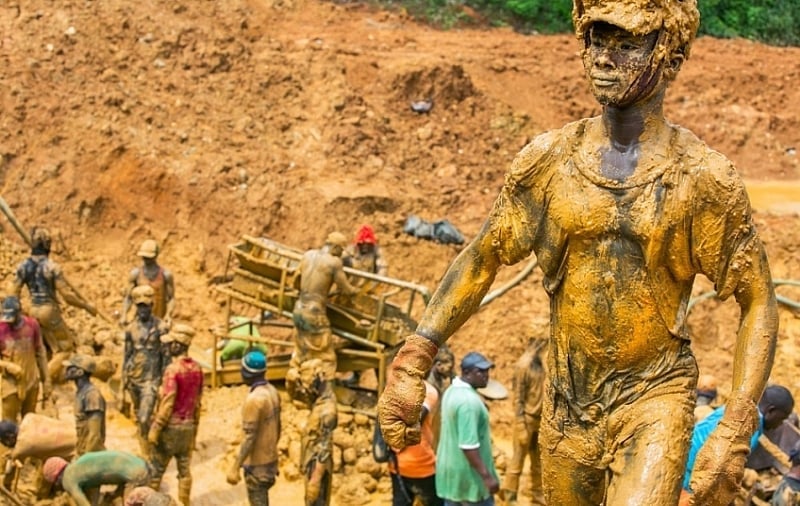The United Nations has expressed strong backing for the grassroots campaign by Ghanaians and civil society organizations aimed at combating illegal small-scale mining, known locally as galamsey. This unregulated practice has been identified as a significant threat to the country’s environment and economy, utilizing harmful methods such as mercury and excavators to extract gold. The ramifications of galamsey are severe, inflicting long-lasting damage on both ecological systems and local communities. Charles Abani, the UN Resident Coordinator for Ghana, acknowledged the manifold effects of illegal mining, emphasizing that it exacerbates poverty, undermines livelihoods, pollutes natural resources, negatively affects public health, and contributes to social unrest and illicit finance. Such sentiments highlight the urgency for intervention in a situation that has persisted for years, as experts underline the dire socio-economic consequences tied to unregulated mining activities.
In light of these significant concerns, thousands of Ghanaians have engaged in protests against galamsey, pressing the government for immediate and effective measures to address the issue. Among the demonstrators’ key demands is a call for the government to implement a comprehensive and sustainable response to the crisis. Abani, urging a peaceful and responsible approach to the protests, has also called upon the police to exercise professionalism in maintaining order while safeguarding human rights. This balance of maintaining civil peace while supporting the rights of the citizens to voice their grievances showcases the complex interplay between governance, civil rights, and public safety in addressing the galamsey crisis.
Collaboration across various sectors of Ghanaian society is deemed critical to solving the pervasive challenge of galamsey. Abani has urged leaders from all areas, including government, political parties, traditional and religious organizations, as well as civil society and the private sector, to unite in their efforts to combat illegal mining. His call for unity reflects the intricate web of stakeholders affected by the galamsey crisis, all of whom must work collaboratively to ensure successful outcomes. Support from these diverse groups can help catalyze action and policy reform that not only addresses the immediate threats posed by illegal mining but also anticipates future challenges and safeguards the nation’s resources for subsequent generations.
The partnership between the United Nations and Ghana is pivotal as the UN pledges its support for initiatives aimed at preserving the country’s natural resources and environment. With a focus on sustainable development, the UN’s involvement could provide valuable expertise and resources that help Ghana navigate the complexities of illegal mining. By fostering programs that promote responsible mining practices and environmental stewardship, the collaboration holds the potential to restore ecological balance and bolster economic viability without compromising the livelihoods of local communities dependent on these resources. Such initiatives could pave the pathway for a more sustainable future for Ghana, where the benefits of natural resource exploitation are harnessed responsibly.
Despite these calls for action and proposed collaborations, President Nana Akufo-Addo has indicated the need for more time to address the pressing demands for a state of emergency and a blanket ban on galamsey. This hesitance reflects the challenges faced by policymakers in implementing immediate measures without fully considering the broader social and economic implications. The complexities of the galamsey issue, which includes livelihoods for many involved in the mining sector, complicate the decision-making process. Balancing the urgent need for environmental protection with economic realities embodies the ongoing struggle that the Ghanaian government faces in responding to public outcry.
The persistence of galamsey and its adverse effects epitomize a broader regional challenge in West Africa, where illegal mining has become an entrenched issue. The implications of unchecked mining practices extend beyond environmental degradation; they compromise health, safety, and resource stability throughout the region. As protests amplify and public sentiment increasingly calls for government intervention, the role of institutions, both domestically and internationally, becomes paramount. The situation in Ghana serves as a microcosm of a larger narrative, where collaboration and accountability are essential in addressing not only the immediate crisis of galamsey but also fostering a culture of responsible resource management and governance that can fortify the future of Ghana and its people.


